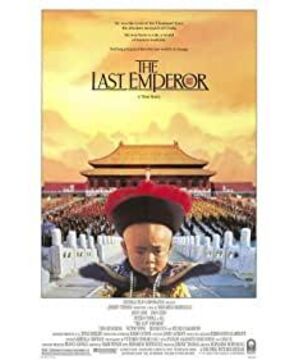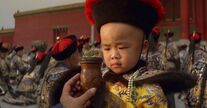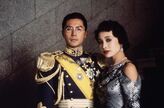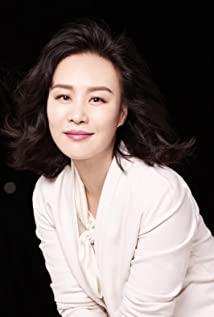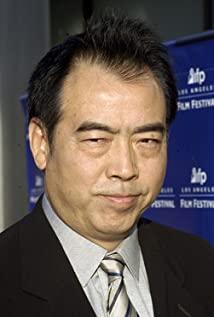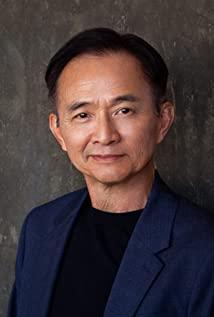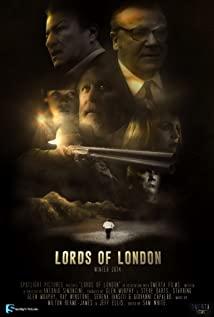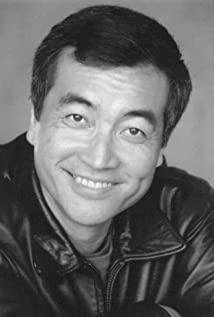Broad and profound.
From the fall of the Qing Dynasty to the separatist regime of the warlords to the Japanese invasion of China and finally the Communist Party's hegemony, this film spans more than 50 years and covers the breadth of the entire modern history of China; The last civilian gardener, this film also has a profound depiction of Puyi's embarrassing fate. As a viewer, whether you look at Puyi from the ideology of freedom and democracy, who has been monitored and used by the power all his life, review the painful years of repeated national disasters as a Chinese, or look at this from a micro perspective
.
The personal struggle and lament of the struggle against the wheel of the times; this film makes you unable to stand still.
This is one of the best biographical films I have ever seen.
Zunlong, who is still a slender and beautiful man, is of course the best candidate to play Puyi, the weak and playful doll, and Puyi's mottled life is of course the innate advantage of this biography, but what Chen admires most is that the editor and director unloaded it for Puyi. The power of the dragon robe.
Affection.
Family affection with mother and wet nurse, love with queen, and friendship with Mr. johnston.
want.
The vanity of being a puppet emperor, the coddling of modernization and Westernization, and the desire to run away freely.
Through the delicate description of love and desire, Pu Yi took off his dragon robe and showed an ordinary person's face, which made people see himself and the human nature in the same way.
This also deepened the audience's sense of identification with Puyi, so that we are less likely to criticize Puyi's decision to betray the country, but only deeply sympathize with his subsequent fall; because we know that Puyi is living in this country like everyone else. Compared to this era, our power is so small.
Use comparison and contrast to create multiple impressive conflicting images.
In addition to the precise cross-section of the era and the unique character descriptions, there are many unforgettable scene arrangements that complement the above two. Among them, the profound conflict charm is mainly displayed in the form of comparison and contrast:
Comparison
On the night Puyi ascended the throne as Emperor of Manchukuo, he and the empress had a quarrel over the puppet regime. Puyi told the queen to go back to the room first, not to lose the frame. Before leaving the banquet hall, the queen pretended to be excited and raised a glass to Puyi and shouted long live. After speaking, in the sound of long live one after another, in front of Puyi. Without looking back, I left this gorgeous but distorted banquet hall.
This is a comparison between vanity and true feelings, as well as a conflict between power and love.
In contrast
, when Puyi was finally free in his twilight years and lived the life of a gardener as a commoner, he bought a ticket to visit the Forbidden City. He wanted to sit on the dragon chair again, but a child came to stop him, and told him that he was the son of the caretaker and lived here. Puyi replied with a smile, "I used to live here too."
It was a wonderful set of points to go from not being able to step out of the Forbidden City one step at a time to finally having to buy a ticket to enter the city. Later, the director preset a vibrant child. Meeting with Pu Yi in his twilight years immediately touched the hearts of the audience. Isn't this power much more powerful than those old-fashioned flashbacks?
Although the Chinese people in the movie are all speaking foreign languages, please don't be disgusted by it, because this is not much different from our interpretation of costume dramas in the current Cantonese.
Chinese, please don't miss this movie.
View more about The Last Emperor reviews


